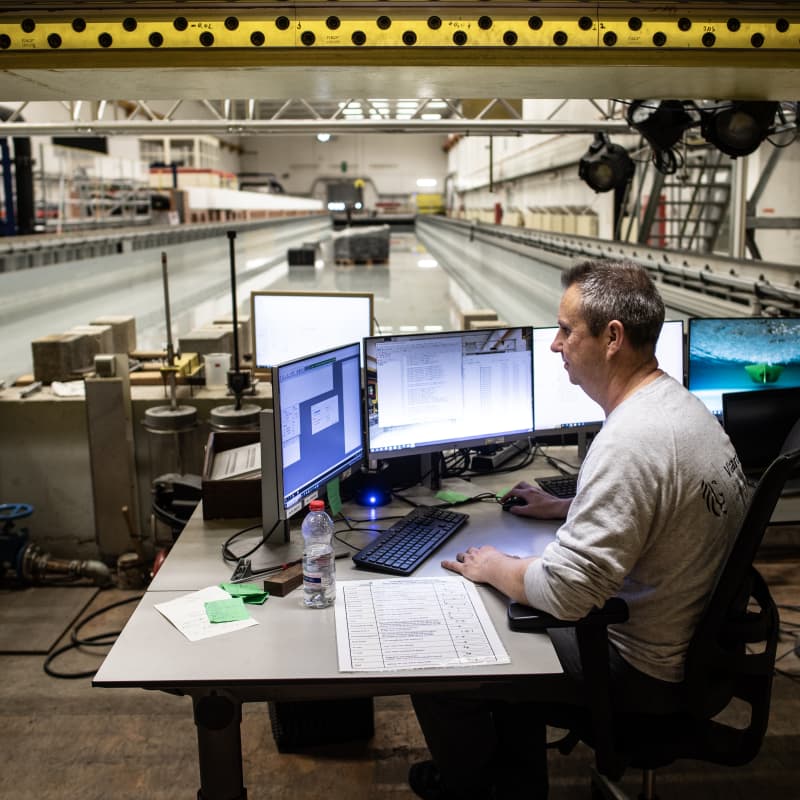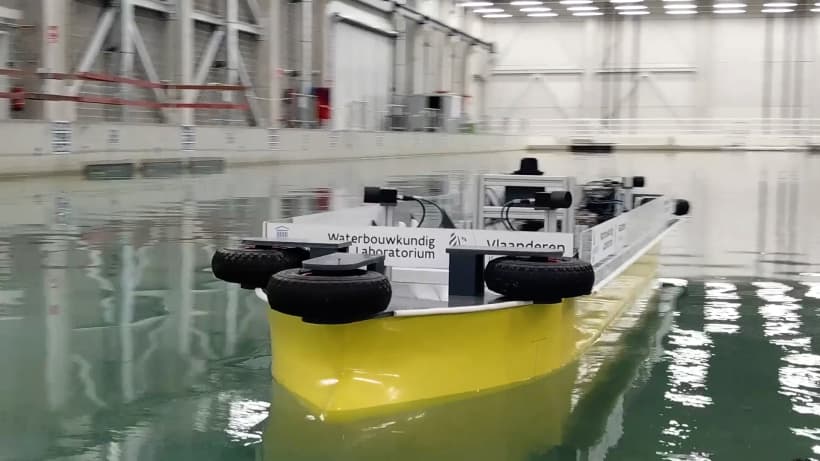Flanders Hydraulics
Flanders Hydraulics is a recognised Flemish Scientific Institution. It examines the impact of human activity and nature on water systems and its effects on navigation and water-related infrastructure. In addition to assignments for the Mobility and Public Works policy area, Flanders Hydraulics also carries out research for other government departments and the private sector at home and abroad. That means that stakeholders outside Flanders can also call on their expertise and facilities.

News
Objectives
Flanders Hydraulics is a centre of expertise for research and advice on hydraulic, nautical, sediment-related and hydrological questions. To achieve this, it pursues 4 strategic objectives:
- Stap 1
Support the Flemish government to:
- improve safety in shipping
- address flooding and water shortages, increase flood safety and engage in water quantity management
- develop safe and efficient water-related
infrastructure - build sustainable coastal and waterway management
- contribute to waterways, coastal and port policy
- Stap 2
Align with long-term policy and customer objectives
- Stap 3
Forge strategic alliances for a better service and a stronger position
- Stap 4
Develop a scientific toolbox for applicable, quality and economically sound innovation
Video
Research with top technology

The activities of the Hydraulic Laboratory are spread across 2 sites: the headquarters in Antwerp and the Maritime Research Centre (MOC) in Ostend. At the MOC, a team of experts works with 2 state-of-the-art scale models for the maritime industry: a coastal and ocean basin (managed by a consortium of Flanders Hydraulics together with KU Leuven and Ghent University) and a towing tank for ship manoeuvres in shallow water. With this, they are conducting pioneering research on the impact of waves, tides and wind on ships and objects in the sea.
Test and innovate
Flanders Hydraulics supports the Flemish government’s policy preparation and implementation by sharing knowledge and advice on water systems in a scientifically sound manner. But it also makes its testing facilities available to foreign stakeholders such as shipbuilders and research institutes. Flanders Hydraulics wants to use its expertise to help solve concrete issues worldwide, including through the Knowledge Centre Manoeuvring in Shallow and Confined Water, the Dykes and Banks Knowledge Network and cross-border partnerships and projects.